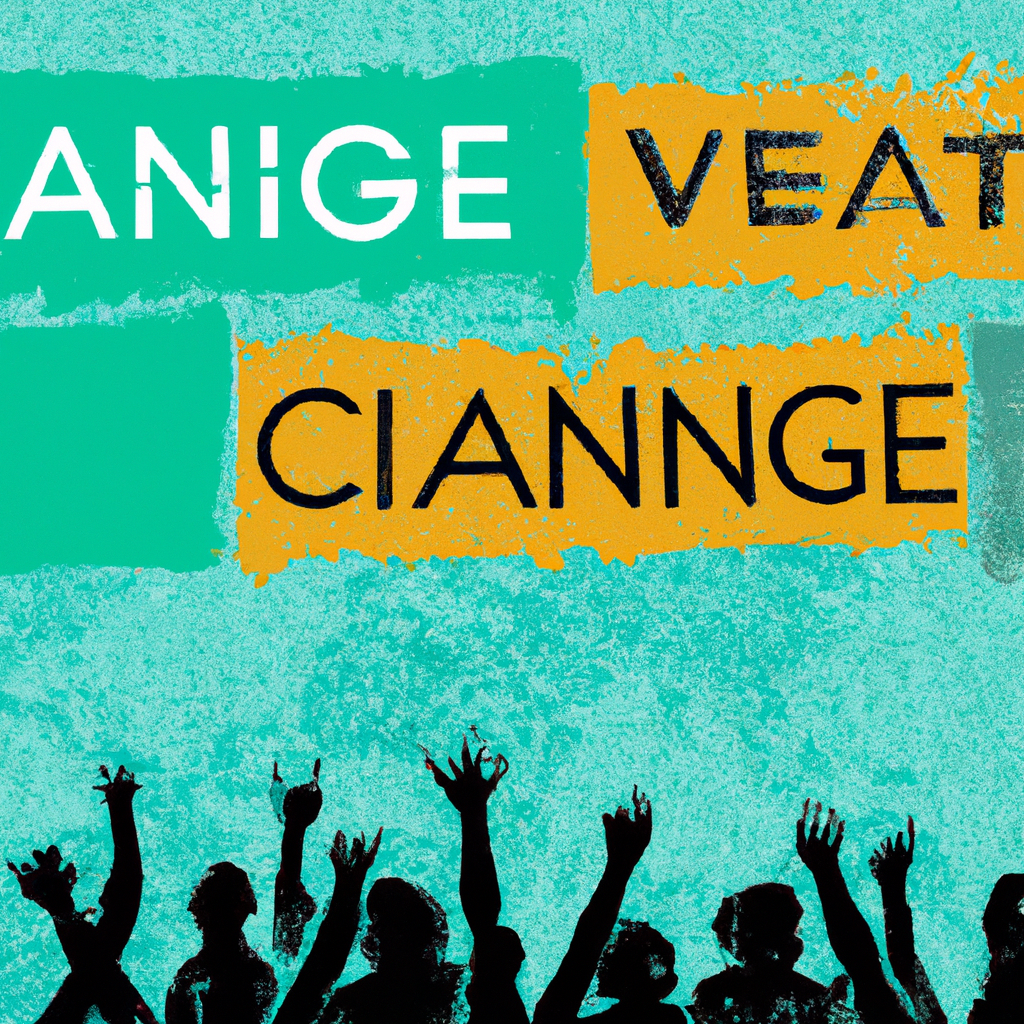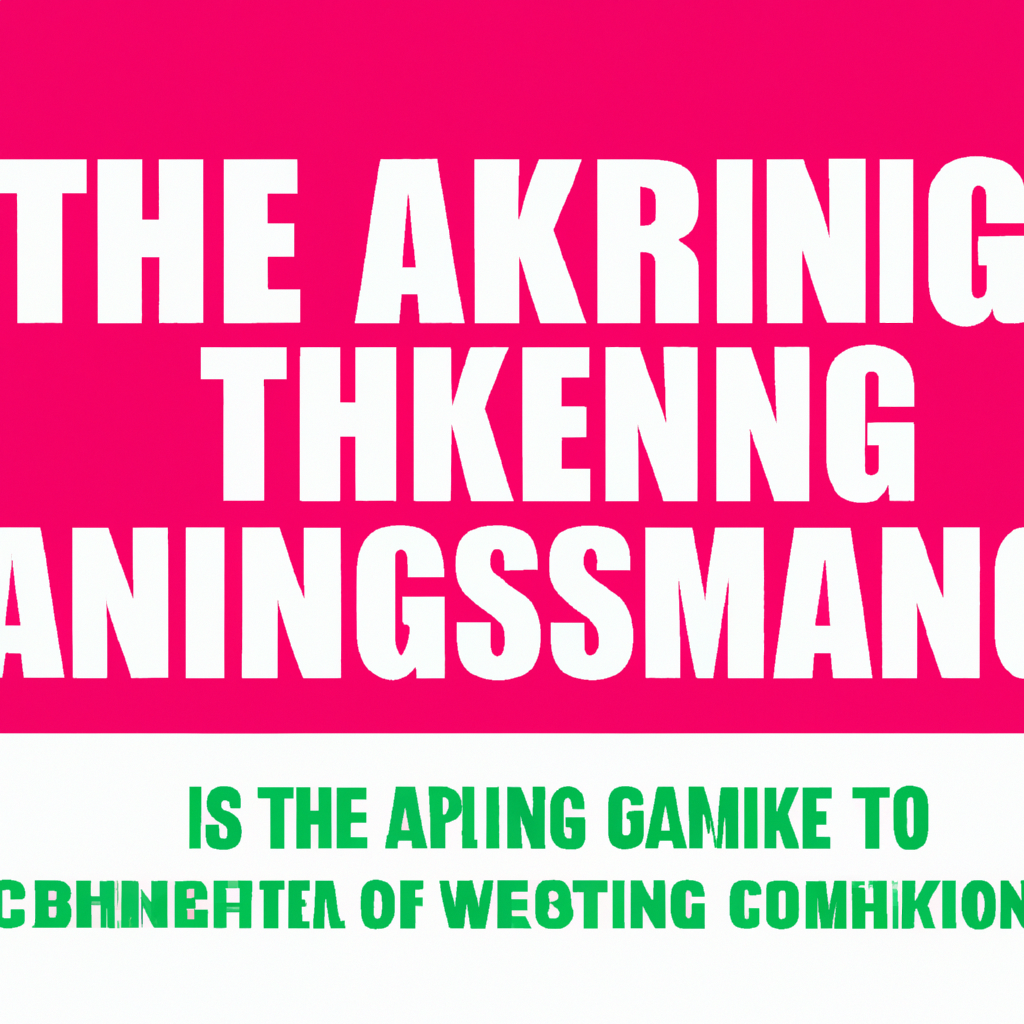In the hallowed halls of history, some voices reverberate louder than others, collecting the echoes of an era and shaping the world around them. They are the political movements and activism that ignite the flames of change, driving societies away from complacency, and towards progress. From the resounding calls for equality and justice to the unwavering demands for environmental conservation, these collective forces pave the path towards a better future. This article embarks on a journey through the labyrinth of time, exploring the voices that have defined political movements and activism throughout the ages. From the humble beginnings to the world-shaking triumphs, we delve into the captivating stories of passionate individuals, united under a common cause. Prepare to immerse yourself in an extraordinary tapestry of political movements and activism, where ordinary people become extraordinary catalysts, and their voices echo through generations.
1. “Awakening the Sleeping Giants: Political Movements and Activism in the Modern Era”
In the fast-paced and interconnected world of today, political movements and activism have taken on a new level of significance and impact. As societies continue to grapple with social, economic, and environmental challenges, individuals and communities are awakening to their power to effect change. They are no longer content to remain passive spectators, but are stepping up as active participants in shaping the course of history.
Modern political movements are characterized by their ability to mobilize and engage people from all walks of life. Through the use of social media platforms and digital networking, individuals are now able to connect, share ideas, and organize on a scale never seen before. This virtual realm has become a powerful tool that can amplify voices and rally support for causes that were previously unheard or marginalized.
Furthermore, the modern era has witnessed the rise of grassroots movements that challenge the status quo and demand accountability from those in power. From climate change activism to LGBTQ+ rights, these movements have become a force to be reckoned with. They derive their strength from a diverse and passionate network of individuals who refuse to stay silent in the face of injustice.
Political activism in the modern era is not limited to traditional methods of protest and demonstration. It has evolved to encompass a wide range of strategies and approaches, including lobbying, online petitions, and boycotts. By employing different tactics, activists are able to reach a broader audience, capture attention, and elicit change.
It is essential to acknowledge that political movements are not confined to a single country or region. In the modern era, ideas, grievances, and solutions transcend borders, allowing activists from different parts of the world to collaborate, learn from one another, and amplify their impact. Solidarity and collective action have become key principles that define the successes of contemporary political movements.
In conclusion, the modern era has revitalized political movements and activism, empowering individuals to become agents of change. With the tools and platforms at their disposal, these “sleeping giants” have awakened to the potential they hold in shaping the future. As we move forward, it is essential to recognize the power of collective action and continue to foster an environment where diverse voices are encouraged, heard, and valued.

2. “From Marches to Memes: The Evolution of Political Activism”
In today’s digital era, political activism has taken on an entirely new form. From the traditional methods of marches and protests to the viral sensations of internet memes, the landscape of activism has evolved dramatically. Let’s explore this fascinating transformation and how it has changed the way people engage in political movements.
The Power of Marches
For centuries, marches and protests have been the backbone of political activism. The physical presence of thousands of people united for a common cause sends a powerful message to those in positions of power. Marches allow individuals to gather together, voice their concerns, and demand change. They create a sense of unity and solidarity among like-minded individuals and have played a crucial role in historic movements like the civil rights movement, women’s suffrage, and anti-war protests.
The Rise of Memes
However, with the advent of social media, a new tool for political expression has emerged: memes. Memes are humorous, satirical, or thought-provoking images, videos, or texts that spread rapidly across the internet. They have become a platform for expressing political opinions and criticisms in a concise and relatable way. Memes allow for the dissemination of information and ideas to a vast audience, often transcending political boundaries and reaching even the most apolitical individuals.
Memes have the power to ignite conversations, challenge authority, and promote social change, but they also have their limitations. Due to their often lighthearted nature, memes can sometimes oversimplify complex political issues, reducing them to catchy slogans or clichéd images. Nevertheless, they continue to be an influential tool in shaping public opinion and forcing political discourse in the digital age.
An Ally in Social Media
Social media platforms have become the breeding ground for political activism in the 21st century. They offer a space for individuals to connect, share ideas, and mobilize for causes close to their hearts. Platforms like Twitter, Facebook, and Instagram act as catalysts for generating online movements, raising awareness, and creating virtual communities. Hashtags enable individuals to voice their thoughts collectively, ensuring their messages reach a larger audience and have a higher chance of going viral.
Online activism allows people from different regions, backgrounds, and perspectives to engage in meaningful discussions, exchange information, and challenge oppressive systems. It provides individuals with a sense of agency, empowering them to take a stand and demand change even from the comfort of their own homes.
3. “Hearts Aflame: Inspiring Voices that Fuel Political Change”
Gather round and let us introduce you to the passionate voices that ignite the flames of political change. These remarkable individuals possess the power to move nations, challenge established norms, and inspire millions to stand up for what they believe in. Prepare yourself for an extraordinary journey into the realms of political activism.
First on our list is Maya Rodriguez, a fearless advocate for environmental justice. Maya’s tireless efforts to protect our planet have made her a force to be reckoned with. Through her powerful speeches and thought-provoking writing, she urges governments and corporations to prioritize sustainability. Maya’s indomitable spirit and unwavering determination serve as a beacon of hope for those fighting for a greener future.
Next, we have Jamal Patel, a charismatic trailblazer in the fight for social equality. Jamal’s eloquent words and magnetic presence captivate audiences, prompting them to question systemic oppression and challenge societal barriers. With his ability to empathize with people from all walks of life, Jamal encourages communities to rise up and demand justice, leaving an indelible mark on the path to equality.
Joining these inspiring voices is Kira Thompson, an outspoken advocate for education reform. Kira fearlessly tackles the flaws in our current education system, passionately emphasizing the importance of accessible and equitable learning opportunities for all. Through her engaging workshops and enlightening discussions, Kira empowers students, teachers, and policymakers to reshape the future of education, one step at a time.
As you embark on this captivating journey through the realms of political change, remember that the power to transform lies within each of us. Let the voices of Maya, Jamal, and Kira ignite the flames of inspiration within your own heart. Together, we can fuel the fire that will shape a better future for all.
4. “Unifying Diversity: The Power of Coalition Building in Political Movements
In today’s political landscape, diversity plays a crucial role in effecting real change. Recognizing the power of coalition building can be a transformative force that unifies individuals with diverse backgrounds and perspectives, allowing them to work together towards a common goal. By coming together, political movements can harness the strength of their collective voices to challenge the status quo and shape a more inclusive and equitable society.
One of the key advantages of coalition building is the ability to tap into the unique strengths and resources each group brings to the table. Whether it’s expertise in grassroots organizing, policy analysis, or community outreach, collaboration allows for a wider range of skills and perspectives to be utilized. By working together, a coalition can effectively address a broader set of issues, ensuring a comprehensive and well-rounded approach to tackling complex social and political problems.
The process of coalition building also allows for the forging of new relationships and alliances. When individuals and organizations with shared goals come together, they have the opportunity to learn from one another, building trust and mutual understanding. Coalition building encourages dialogue and the exchange of ideas, fostering a sense of solidarity and camaraderie among diverse groups that might not have had the chance to collaborate otherwise.
Furthermore, coalition building provides a platform for amplifying marginalized voices and challenging systemic injustices. By uniting under a common cause, a coalition can lend strength to those whose voices may have been overlooked or silenced in traditional power structures. This collective power enables movements to demand accountability from policymakers and institutions, pushing for transformative change that benefits all members of society.
As with any endeavor involving multiple stakeholders, effective coalition building requires open communication and the cultivation of shared values. It necessitates respect for diverse perspectives, a commitment to consensus building, and a willingness to engage in difficult conversations. By prioritizing inclusivity and emphasizing the common ground between groups, coalitions can overcome barriers and work towards solutions that uplift everyone involved.
In closing, it’s clear that Political Movements and Activism have connected many citizens to their own, individual power. Our collective voices are being heard, as we collectively stand together to create positive, lasting change in our communities, our nation, and our world. Let’s continue to join forces as we generate progress and social justice. By utilizing our own voices, together, we can all make a difference.




